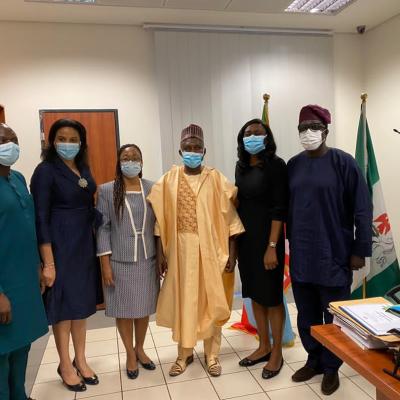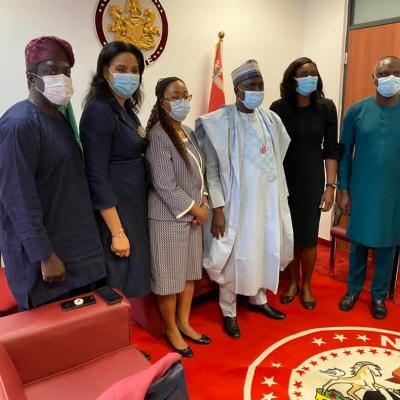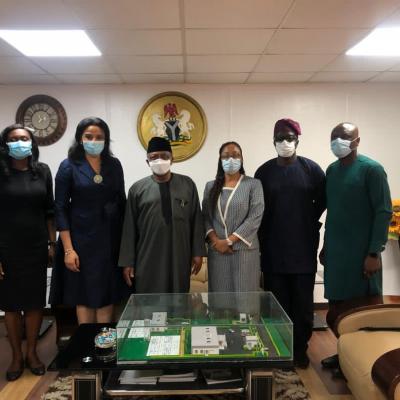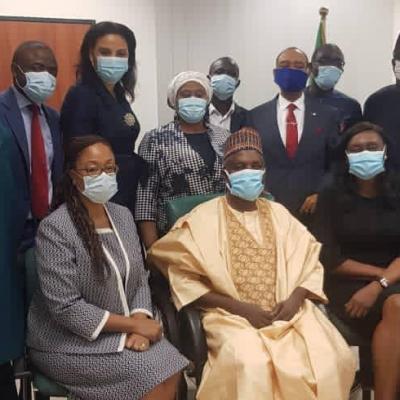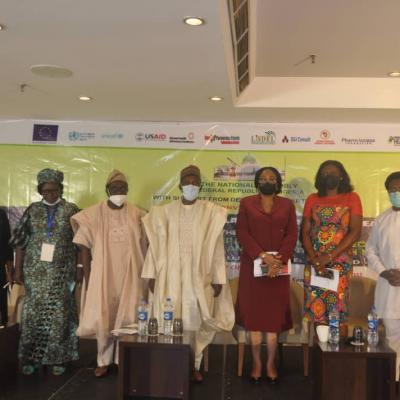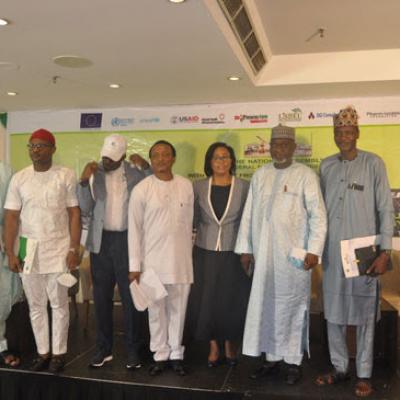Frontpage News (3249)
President Buhari Pledges Upward Review Of Budgetary Allocation To Health Sector
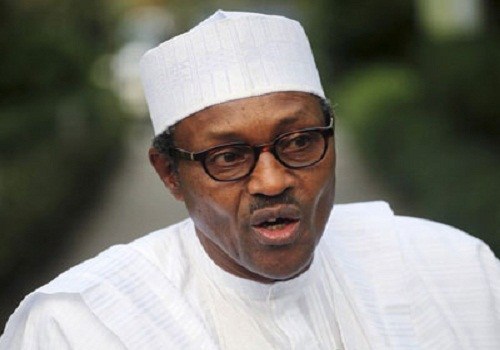 President Muhammadu Buhari says the Federal Government is considering an upward review of budgetary allocation to the health sector to improve the quality and access to medical facilities across the country. Buhari made the pledge when he received the new executive of the Nigerian Medical Association (NMA) at the State House, Abuja on Thursday. According to him, the review will reflect the government’s priority of ensuring that Nigerians get better health care, especially in specialized areas.
President Muhammadu Buhari says the Federal Government is considering an upward review of budgetary allocation to the health sector to improve the quality and access to medical facilities across the country. Buhari made the pledge when he received the new executive of the Nigerian Medical Association (NMA) at the State House, Abuja on Thursday. According to him, the review will reflect the government’s priority of ensuring that Nigerians get better health care, especially in specialized areas.
“We place quality healthcare on our priority list, and we are already marching on with the Primary Health Care services and some state governors have bought into it. “We are committed to universal health care.’’
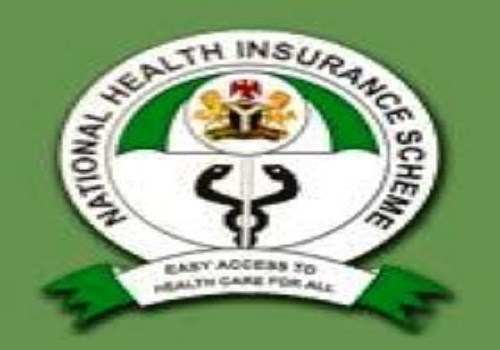 National Health Insurance Scheme on Tuesday urged health workers to treat patients with respect and dignity in order to ease access to healthcare.
National Health Insurance Scheme on Tuesday urged health workers to treat patients with respect and dignity in order to ease access to healthcare. The United Nations Children’s Funds (UNICEF), has tasked the Nigerian Government on effort towards the targets of 15 percent annual national budget allocation to the health sector. UNICEF Deputy Representative, Isiye Ndonbi, stated this at the 2nd Annual Legislative Summit on Universal Health Coverage (UHC) and Nutrition, themed: the role of lawmakers in the implementation of 1 percent consolidated revenue fund and preparation for the mandatory contribution of Nigerians to health insurance, held in Abuja.
The United Nations Children’s Funds (UNICEF), has tasked the Nigerian Government on effort towards the targets of 15 percent annual national budget allocation to the health sector. UNICEF Deputy Representative, Isiye Ndonbi, stated this at the 2nd Annual Legislative Summit on Universal Health Coverage (UHC) and Nutrition, themed: the role of lawmakers in the implementation of 1 percent consolidated revenue fund and preparation for the mandatory contribution of Nigerians to health insurance, held in Abuja.
 A man, Emmanuel Owolanke, has been arrested by the Hospital Services Department of the Ondo State Ministry of Health for illegally operating a hospital. Owolanke, who has his hospital at Uso town, in the Owo Local Government Area, was alleged to be parading himself as a medical doctor and was said to have been carrying out surgical operations on unsuspected patients.
A man, Emmanuel Owolanke, has been arrested by the Hospital Services Department of the Ondo State Ministry of Health for illegally operating a hospital. Owolanke, who has his hospital at Uso town, in the Owo Local Government Area, was alleged to be parading himself as a medical doctor and was said to have been carrying out surgical operations on unsuspected patients.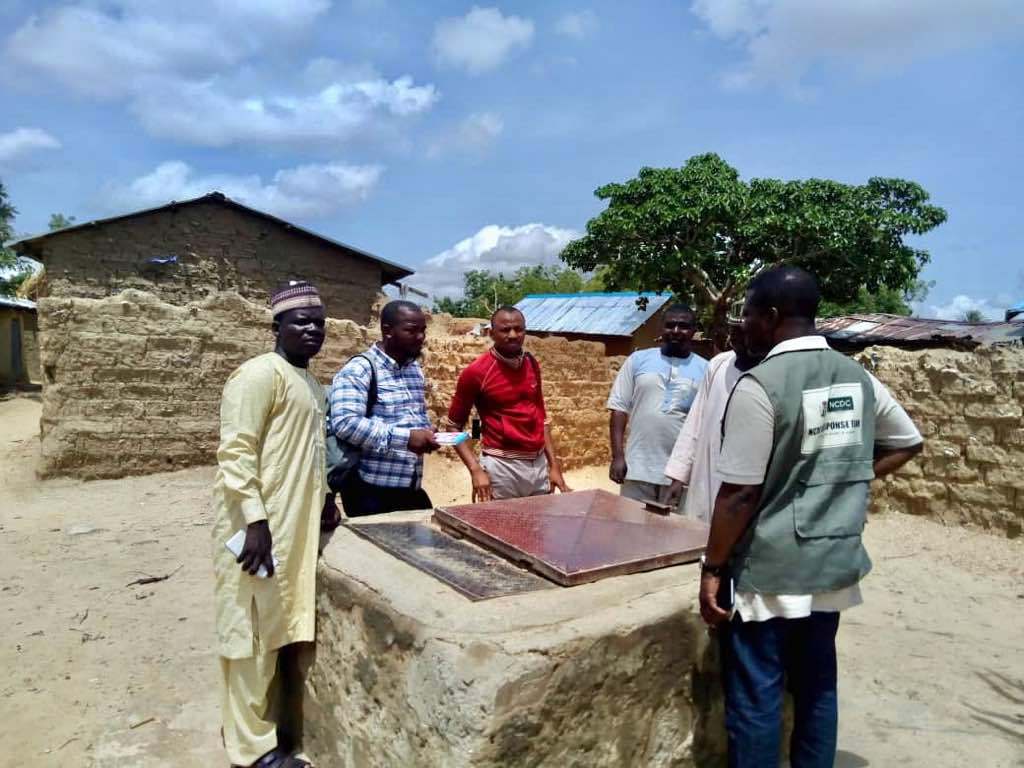 Although cholera cases are still being reported from eight states, there has been a general decline in the number of new cases, the Nigeria Centre for Disease Control has said. The eight states where cases are still being reported are Adamawa, Bauchi, Kano, Katsina, Zamfara, Kogi, Plateau and Kaduna.
Although cholera cases are still being reported from eight states, there has been a general decline in the number of new cases, the Nigeria Centre for Disease Control has said. The eight states where cases are still being reported are Adamawa, Bauchi, Kano, Katsina, Zamfara, Kogi, Plateau and Kaduna.
NCDC in a statement signed by its CEO, Chikwe Ihekweazu, on Saturday said in the last four weeks, there have been no cases reported from Anambra, Nasarawa and Yobe states.
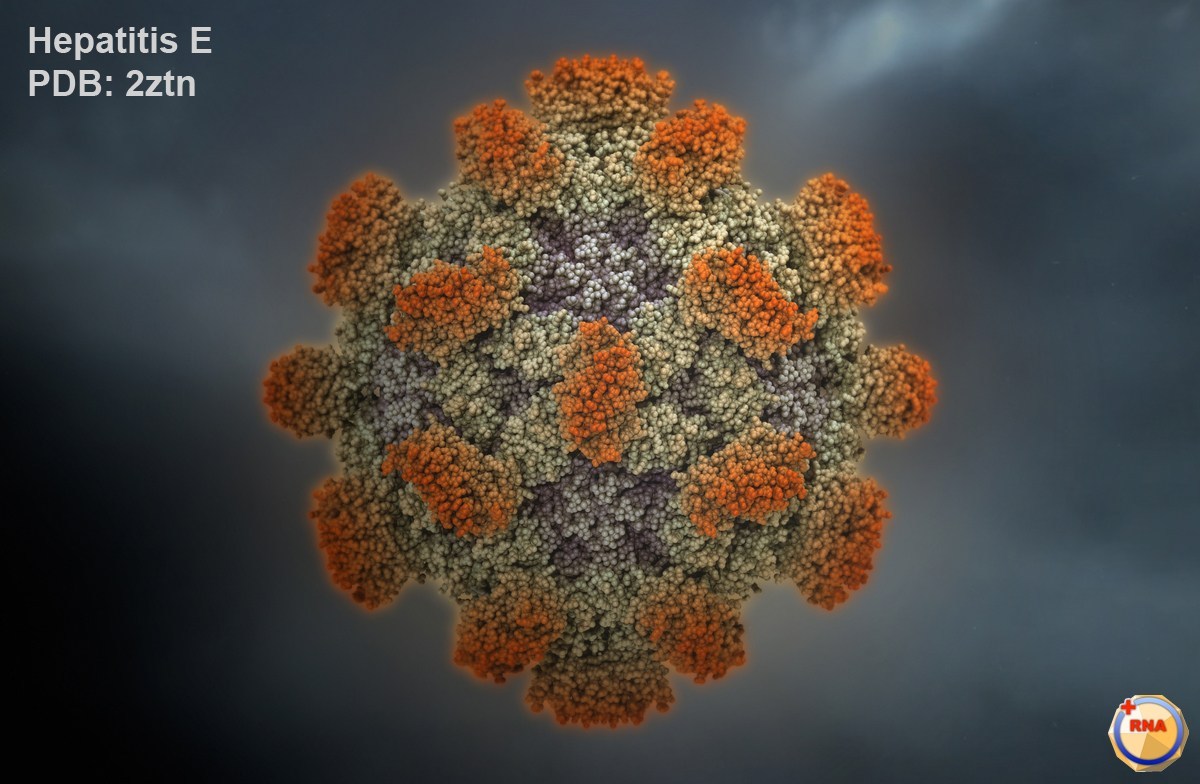 The World Hepatitis Day, observed July 28 every year is aimed at raising global awareness on hepatitis. Hepatitis is the inflammation of the liver tissue.
The World Hepatitis Day, observed July 28 every year is aimed at raising global awareness on hepatitis. Hepatitis is the inflammation of the liver tissue.
There is five group of Hepatitis A, B,C, D and E. The disease is regarded as a silent killer because while some people do not have symptoms, other develop yellow discolouration of the skin and whiteness of the eyes, poor appetite, vomiting, tiredness, abdominal pain, or diarrhoea.
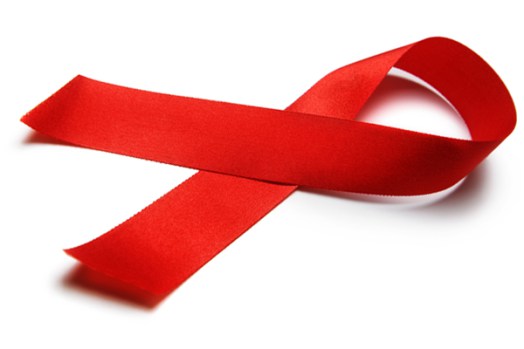 The Joint United Nations Programme on HIV/AIDS (UNAIDS) said no fewer than 1.8 million people are newly infected by HIV, warning that HIV infections continue to rise.
The Joint United Nations Programme on HIV/AIDS (UNAIDS) said no fewer than 1.8 million people are newly infected by HIV, warning that HIV infections continue to rise.
Executive Director of UNAIDS, Michel Sidibé, at the International AIDS Conference in the Netherlands, called on countries to boost prevention measures and continue facilitating access to treatment, according to UNAIDS statement.
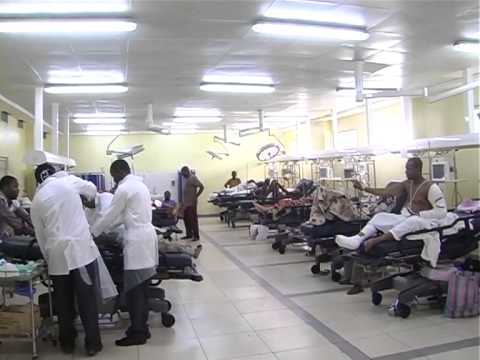 Godwin Adama, the Consul-General of Nigeria in South Africa, says about 5,000 Nigerian medical practitioners are contributing to the development of the health sector in South Africa.
Godwin Adama, the Consul-General of Nigeria in South Africa, says about 5,000 Nigerian medical practitioners are contributing to the development of the health sector in South Africa.
Mr Adama made this known in a statement issued by the Vice Consul, Information and Culture, David Abraham, and made available to the News Agency of Nigeria (NAN) on Monday in Abuja.
 The Democratic Republic of Congo’s health ministry on Tuesday declared an end to an Ebola outbreak believed to have killed 33 people, after 42 days with no new cases.
The Democratic Republic of Congo’s health ministry on Tuesday declared an end to an Ebola outbreak believed to have killed 33 people, after 42 days with no new cases.
The outbreak, first detected in northwest Congo in April, was dealt with rapidly by the World Health Organisation and Congolese authorities, including the deployment of an experimental vaccine given to over 3,300 people.
 Nigerians must be prepared for a disease outbreak anytime as global warming and ease of transportation have made it easy for an outbreak in any country to get to another fast. The Minister of Health, Prof. Isaac Adewole, gave the advice in his remarks at the University of Lagos Pro-Chancellor’s Distinguished Public Annual Lecture Series, on Monday in Lagos.
Nigerians must be prepared for a disease outbreak anytime as global warming and ease of transportation have made it easy for an outbreak in any country to get to another fast. The Minister of Health, Prof. Isaac Adewole, gave the advice in his remarks at the University of Lagos Pro-Chancellor’s Distinguished Public Annual Lecture Series, on Monday in Lagos.
More...
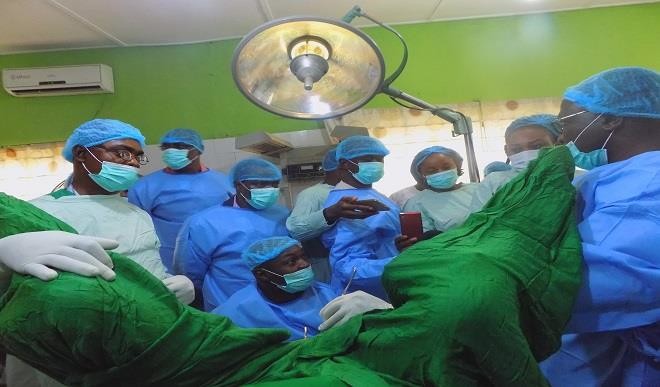 The United Nations Fund Population (UNFPA) on Tuesday commenced surgical operations for at least 150 women who are currently suffering from vesicovaginal fistula (VVF) in Borno state. It also noted that the campaign and surgical operations will last for two weeks in Borno and adjoining states.
The United Nations Fund Population (UNFPA) on Tuesday commenced surgical operations for at least 150 women who are currently suffering from vesicovaginal fistula (VVF) in Borno state. It also noted that the campaign and surgical operations will last for two weeks in Borno and adjoining states.
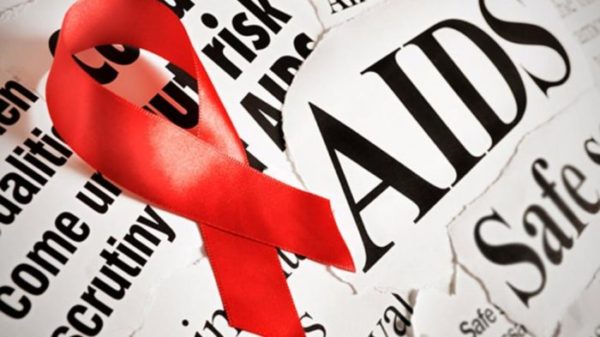 Teenagers, and particularly girls, are bearing the brunt of the global AIDS epidemic with around 30 adolescents becoming infected with HIV every hour, according to a report by the UN Children’s Fund (UNICEF)
Teenagers, and particularly girls, are bearing the brunt of the global AIDS epidemic with around 30 adolescents becoming infected with HIV every hour, according to a report by the UN Children’s Fund (UNICEF)
UNICEF said out of those 30 new infections each hour among 15 to 19 year-olds in 2017, around 20 or two-thirds – were girls.
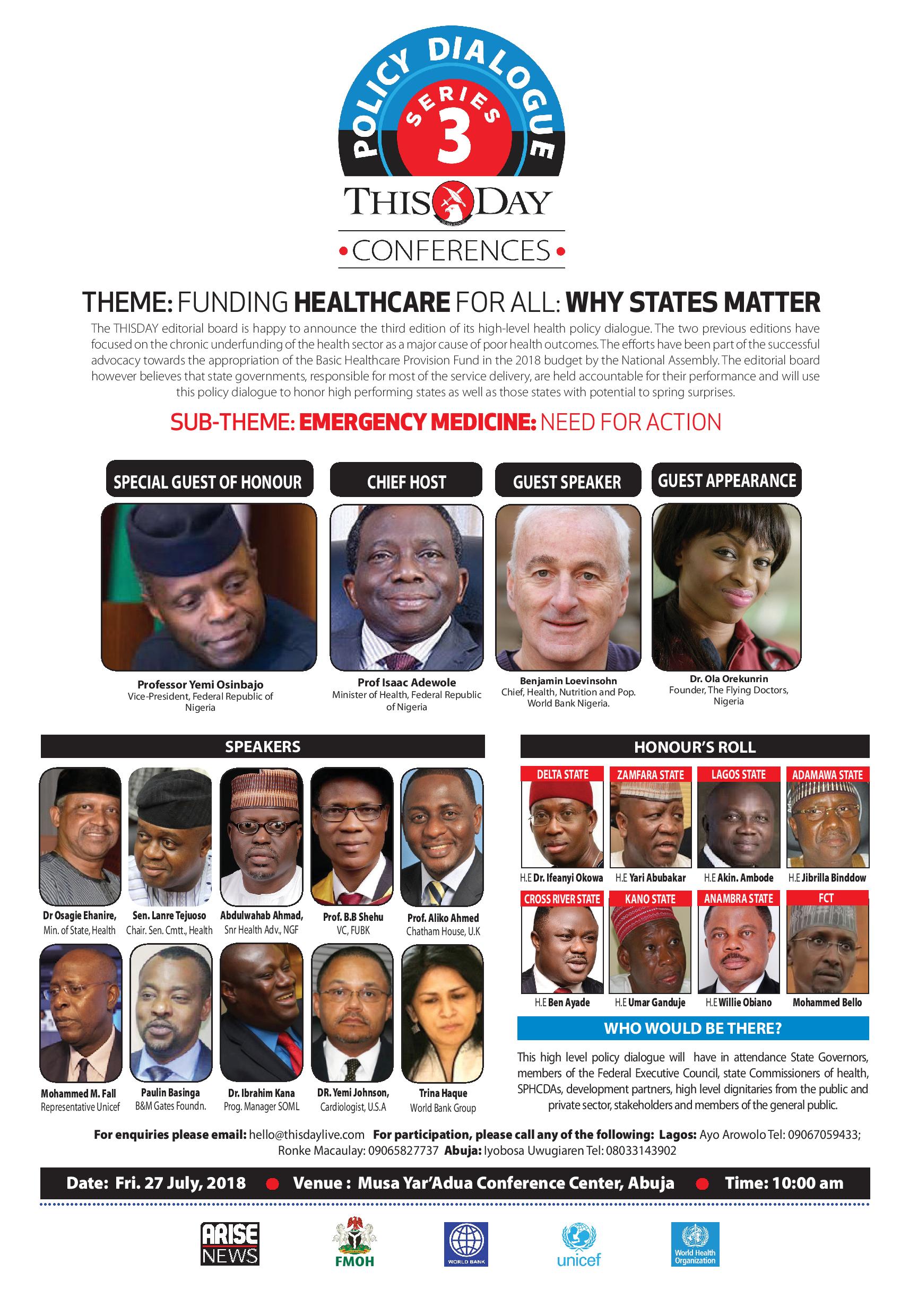 The THISDAY HEALTH POLICY DIALOGUE SERIES was co-created in partnership with the World Bank Group to bring to the fore key policy issues in the health sector. Following a successful inaugural edition in March 2018 which featured Nigerian born Director of Health Nutrition Population at the World Bank Group in DC – Dr Soji Adeyi, the second edition had as guest speaker the WHO Director-General Dr Tedros Ghebreyesus.
The THISDAY HEALTH POLICY DIALOGUE SERIES was co-created in partnership with the World Bank Group to bring to the fore key policy issues in the health sector. Following a successful inaugural edition in March 2018 which featured Nigerian born Director of Health Nutrition Population at the World Bank Group in DC – Dr Soji Adeyi, the second edition had as guest speaker the WHO Director-General Dr Tedros Ghebreyesus.
Due to the calibre of speakers and the topical issues featured the health policy dialogue has firmly established itself as Nigeria’s leading public event on health policy. The two previous editions of the Health policy dialogue focused on the chronic underfunding of the health sector as a major cause of poor health outcomes with successful outcomes.
Fresh Crisis rocks NHIS; Governing Council rejects budget, accuses management of ‘padding’
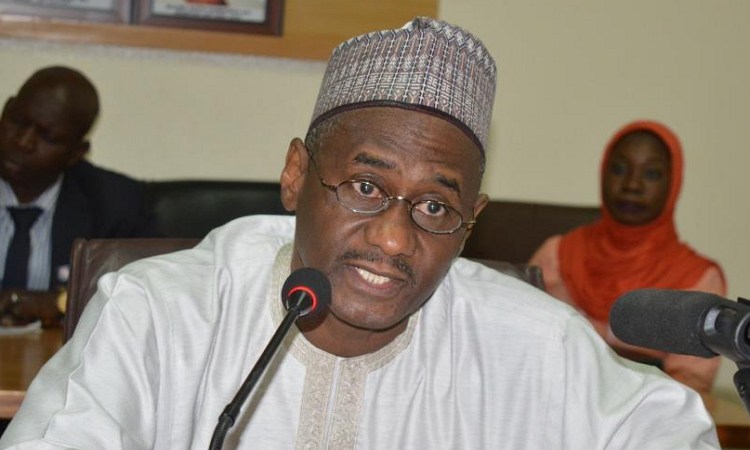 Anxiety is growing at the National Health Insurance Scheme (NHIS) following the rejection of the 2018 budget of the agency by its Governing Council over alleged improprieties. The scheme’s Governing Council is empowered by law to review and approve the budget of the NHIS.
Anxiety is growing at the National Health Insurance Scheme (NHIS) following the rejection of the 2018 budget of the agency by its Governing Council over alleged improprieties. The scheme’s Governing Council is empowered by law to review and approve the budget of the NHIS.
The budget was delayed by the protracted crisis at the agency that got to a climax last year when the Minister of Health, Isaac Adewole, sent the Executive Secretary, Usman Yusuf, on indefinite suspension over allegations of misconduct and corruption.

